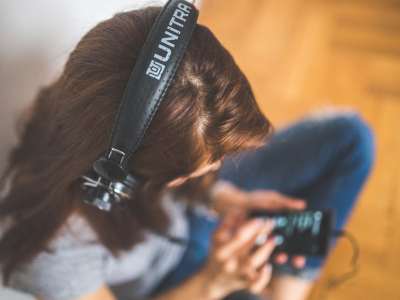Sleeping on your stomach can cause unnecessary stress and joint pain on your back and neck. Although stomach sleeping can help remedy a snoring problem or acute sleep apnea, it’s not recommended for regular sleepers wanting to practice proper sleep protocol. It’s extremely important to have the right mattress in this regard.
In this article, we’ll show you why sleeping on your stomach isn’t ideal—however, there are things you can do to make stomach sleeping safer and more comfortable. We’ll also talk through mattress options for stomach sleepers that will allow them to sleep more comfortably and safely.
The Good News for Stomach Sleepers
Stomach sleeping isn’t all bad. For those who suffer from chronic snoring, acid reflux (otherwise known as heartburn), sleep apnea, or tummy issues, sleeping on your stomach may provide short-term relief. However, that doesn’t mean you should make a habit out of stomach sleeping if you can avoid it.
If you prefer sleeping on your stomach, the good news is that there are custom mattresses available to support your sleeping style. At Helix, we offer mattresses specially designed for stomach sleepers looking for extra support.
Downsides of Stomach Sleeping
There are plenty of reasons why you shouldn’t sleep on your stomach. The main reason why stomach sleeping is problematic is that it can cause long-term spinal issues. If left unattended, even mild spine and back pain can lead to chronic health issues.
Stomach sleepers often complain of side effects such as hip pain and neck problems caused by sleeping in an unnatural position. The spine is naturally curved, but sleeping on one’s stomach throws off the spine’s curvature.
Common Ailments For Stomach Sleepers
Lower back pain
Your lumbar, or your lower back, should be firmly supported throughout the night. This sensitive part of the spine naturally curves to meet your pelvic bone and tailbone. Sleeping on your stomach, unfortunately, causes your lumbar to move out of place. Over time, you can develop chronic back pain by sleeping on your stomach and upsetting your lumbar’s natural curve. Sagging mattresses can also cause back pain.
Neck Pain
Your neck and cervical spine are sensitive parts of the body that should be treated with the utmost care. Stomach sleepers must breathe with their heads tilted to the side, which can cause kinks and other painful side effects. Since your spine is a column of discs, you may even herniate or bulge one of your spinal discs out of position by stomach sleeping.
Shoulder Pain
Shoulder pain is one of the main reasons why a lot of people cannot get to sleep at night. If you’re experiencing shoulder pain, it may be exacerbated by stomach sleeping. Instead, switch to your side to give one of your shoulders relief and rotate shoulders as needed.
Numbness or Tingling
Sleeping on your stomach can disrupt blood flow to your extremities, including your feet and toes. It’s common for stomach sleepers to have their feet “fall asleep” and feel numb and tingly in the morning. To prevent this, try sleeping on your side in a position that supports your spine.
Can You Sleep on Your Stomach While Pregnant?
Pregnant women should never sleep on their stomachs. Instead, pregnant women should sleep on their side and rotate between their right side and left side throughout the week. Medical studies show that sleeping on your left side when you are pregnant can improve blood flow and oxygen supply to the fetus overnight.
Some Good Alternative Sleeping Positions
Side Sleeping
Side sleeping is the most popular sleeping style. This sleeping style involves sleeping with one’s hips and shoulders on the mattress with one leg layered on top of the other. Sleeping on your side supports your spine’s natural curve and makes it easy to breathe properly without tilting your neck.
Back Sleeping
Back sleeping is a style of sleeping in which the sleeper lies supine on the mattress. In other words, a back sleeper sleeps with their back, buttocks, and legs laid flat on the bed. Most back sleepers crane their neck to the left or right side while sleeping. However, back sleepers can invest in a supportive “wrap” style pillow that can hold their neck in a straight position while they sleep.
Combination Sleeping
If you’re looking for the best sleeping position, you may want to consider combination sleeping. This sleeping style is perfect for side sleepers and back sleepers who wake up feeling uncomfortable or irritated throughout the night. Combination sleeping involves a combination of side and back sleeping in which the sleeper rotates position throughout the night as necessary.
Stomach Sleeping Tips To Help
If you’re a natural stomach sleeping, it can be hard to switch sleeping positions overnight. For many of us, it’s borderline impossible. If you’re having a hard time picking up a new sleep position, try these stomach sleeping tips to make the most of your night’s sleep:
- Invest in a firm or medium-firm supportive mattress
- Check out the mattress firmness scale
- Keep your legs straight
- Opt for softer thin pillows that support neck movement
- Prop your hips up with a body pillow
- Purchase a mattress with a layer of cooling gel
- Consider seeing a licensed chiropractor
Most sleepers find the fetal position to be the most comfortable and natural position for their body. However, if you’re sold on stomach sleeping you can make a few changes that will improve your overall posture and spinal integrity.
For the best sleep possible, stomach sleepers should take the Helix Sleep Quiz to find a personalized mattress that supports stomach sleeping. Using the Helix Sleep Quiz, you can find a medium-firm mattress with cooling gel to keep your torso, neck, and head cool and supported while you sleep on your stomach.















